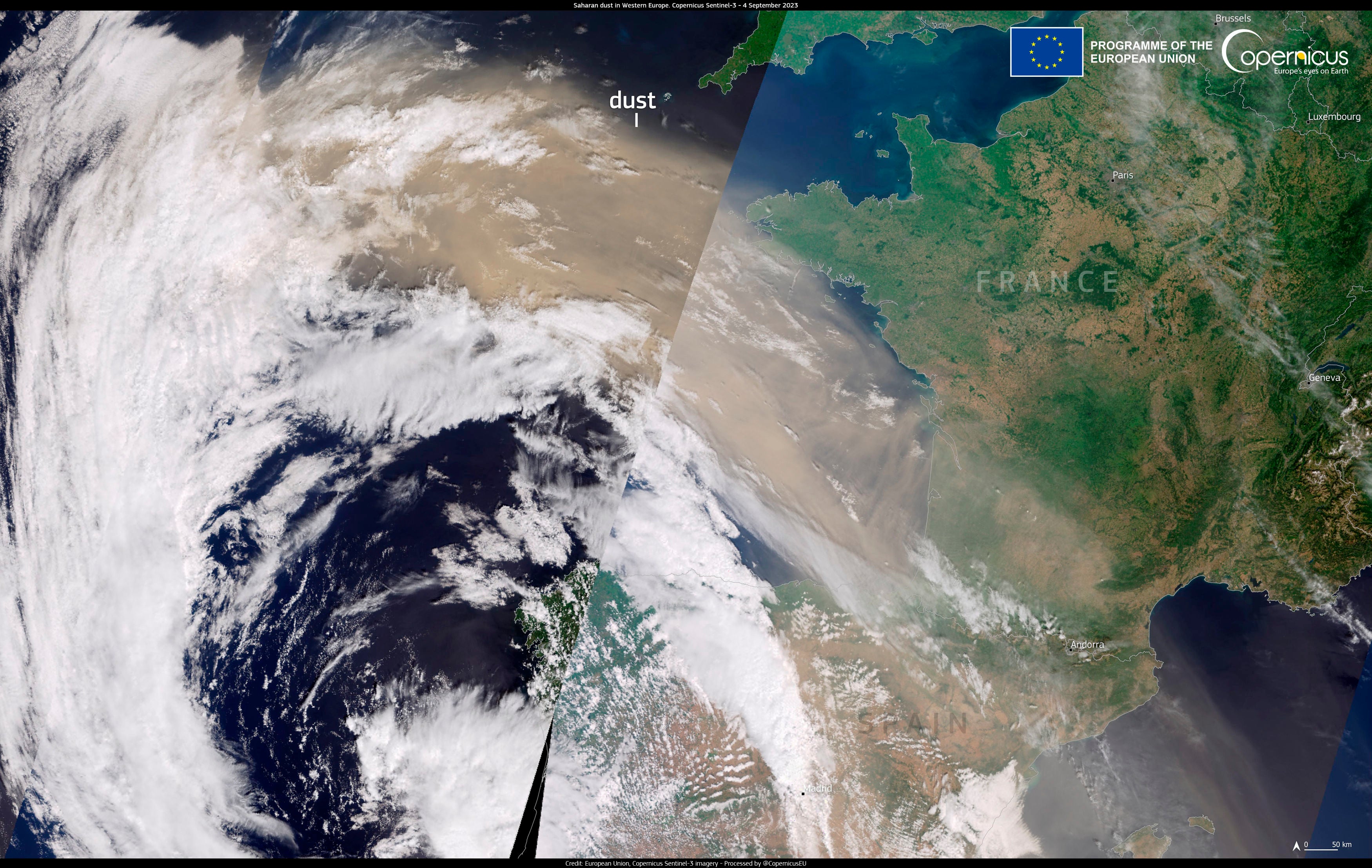Sahara dust cloud sweeps UK as experts issue warning
Satellite images show dust cloud moving 1,200 miles across Mediterranean to UK
Your support helps us to tell the story
From reproductive rights to climate change to Big Tech, The Independent is on the ground when the story is developing. Whether it's investigating the financials of Elon Musk's pro-Trump PAC or producing our latest documentary, 'The A Word', which shines a light on the American women fighting for reproductive rights, we know how important it is to parse out the facts from the messaging.
At such a critical moment in US history, we need reporters on the ground. Your donation allows us to keep sending journalists to speak to both sides of the story.
The Independent is trusted by Americans across the entire political spectrum. And unlike many other quality news outlets, we choose not to lock Americans out of our reporting and analysis with paywalls. We believe quality journalism should be available to everyone, paid for by those who can afford it.
Your support makes all the difference.As the UK embraces a swelteringly hot week, a Saharan dust cloud sweeping across the country is bringing orange skies and dazzling sunsets.
The plume of orange was captured on satellite imagery as the Met Office said dust from the Sahara was blowing north from the Mediterranean.
The dust cloud stretched for more than 1,200 miles on its way to the UK and Scandinavia.

But in combination with the hot weather this week, the red dust is contributing to worsening air pollution.
Prolonged heat above 30C and polluted air also leaves older people and those with respiratory or cardiovascular diseases at greater risk, with the UK Health Security Agency issuing an amber warning until Sunday evening.
The Met Office said the dust cloud is decreasing in the coming days and is expected to fully clear by early next week.
“Saharan dust could pose a serious risk to people living with a lung condition, such as asthma,” Dr Andy Whittamore, clinical lead at the charity Asthma + Lung UK, told The Metro.
“Dust and other types of air pollution are a well-known trigger for people with lung conditions. Toxic air can leave people struggling for breath, worsen symptoms, cause an asthma attack or flare up of their lung condition.”
Met Office spokesperson Stephen Dixon said: “Saharan dust is one factor in the air quality forecast. Moderate levels of air pollution are expected across the UK on Saturday, with some high levels also likely for central and eastern parts.
“Air pollution levels will look to reduce from Sunday, as we start to transition to this more unsettled picture from the north west.”
The dust cloud left car owners confused this morning as they were surprised with their vehicles looking worse for wear.
Mark Dunphy wrote on X (formerly Twitter): “So much for the weekend carwash. The dust on the car today travelled the 4,700km from the Sahara Desert.”
Dust brings red skies because particles in the atmosphere scatter blue light more than red, which is why the sky appears blue during the day.
When the sun is low in the sky, like at dawn and dusk, the light has farther to travel and so the blue light is scattered too much for us to see it, with the Saharan dust exacerbating this effect and turning the skies a deeper red.

The folklore expression “red sky at night, shepherd’s delight” is true in many cases, the Met Office has said, as it means high pressure and fair weather is moving in from the west, “whereas red sky in the morning, shepherd’s warning” - means that high pressure is beginning to move away.
Mr Dixon added: “Saharan dust in the atmosphere is generally decreasing in concentration in the coming days and the remnants of that air is expected to push away as the UK returns to a more mobile Atlantic weather pattern from early next week.”




Join our commenting forum
Join thought-provoking conversations, follow other Independent readers and see their replies
Comments